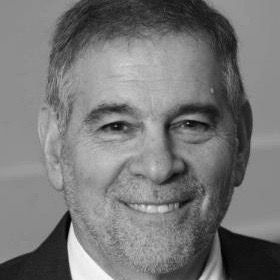On May 30, the United States Postal Service issued a series of new stamps honoring six career State Department diplomats who earned the gratitude of this nation for taking “risks to advance humanitarianism…[and] peace,” even if their actions put themselves “in harm’s way.”
Words of high praise — nonetheless inadequate in the case of honoree Hiram Bingham IV, who served as U.S. vice consul in Marseilles, France, during World War II. In 1940 and 1941 — against the official policies of the United States, which was steadfastly refusing to open Lady Liberty’s doors to persecuted European Jews — Bingham issued visas and false passports to Jews and other refugees, assisting in their escape. He even occasionally sheltered them in his home — risking not only his career but his life, as the Gestapo and SS operated freely in collaborationist Vichy France.
Bingham is credited with saving more than 2,500 people from deportation to death camps. Moreover, working together with fellow American hero journalist Varian Fry, he rescued such famous figures as artists Max Ernst and Marc Chagall, Nobel Prize in Medicine winner Otto Meyerhoff, historian Hannah Arendt and authors Franz Werfel and Hans Habe.
As punishment for his continued defiance of Washington — and helping people the Roosevelt administration and the anti-immigrant WASP establishment that dominated the State Department was abandoning — Bingham was unceremoniously yanked out of France in 1941 and posted to Portugal and then Argentina. In 1945, he was forced to retire from the U.S. Foreign Service.
Although neither Fry nor Bingham received the credit due them in their lifetimes, Fry was eventually the first of the two to receive some measure of posthumous recognition, when in 1995, he became the first and only United States citizen to join Raoul Wallenberg and Oskar Schindler among the non-Jews designated as Righteous Among the Nations by Israel’s national Holocaust memorial, Yad Vashem. Fry — also known as “the American Schindler” or “the artists’ Schindler” — was also accorded “Commemorative Citizenship of the State of Israel” in 1998. Finally, he achieved celebrity of sorts when Barbra Streisand co-produced the 2001 made-for-television movie, “Varian’s War,” starring William Hurt. (In that movie, Bingham is relegated to a mere footnote and even suffered the ignominy of having his named changed to “Harry.”)
Bingham rarely spoke of his wartime activities, concealing them even from his own family. Only after his death in 1988 (Fry died a young man in 1967) did his son discover letters, documents and photographs hidden behind a chimney in their home. The cache revealed Bingham’s struggle to save German and Jewish refugees from death — facts long suppressed by the United States government.
Belatedly, Bingham’s bravery was recognized by the United Nations in 2000 and, ultimately, by the American Foreign Service Association, which paid tribute to him with a special “courageous diplomat” award for “constructive dissent,” presented by Secretary of State Colin Powell. The eight-year campaign to issue a postage stamp in his honor met with success after gaining wide bipartisan support in Congress
Another stamp in this series honors Ambassador Philip C. Habib, a Lebanese Christian from Brooklyn who rose through the ranks of the foreign service to attain the posts of assistant secretary of state and undersecretary of state. In 1981, President Ronald Reagan called Habib out of retirement to serve as his special envoy to the Middle East at a time of growing tension between Israel and the PLO in southern Lebanon. When hostilities erupted into war engulfing Israel, Syria and Palestinian terrorists, Habib engaged in shuttle diplomacy and won the respect of Israeli Prime Minister Menachem Begin as he helped negotiate a truce. In 1982, Habib was awarded the Presidential Medal of Freedom, the nation’s highest civilian award.
Habib deserves mention here because of his outspoken conviction that “the United States should support Israel. It’s a long-standing commitment, a commitment that goes through every administration since Truman, that we support the existence and security of Israel. Now, how, to what extent, on what terms at any given moment, those are subjects for discussion, debate, and reformulation. But the basic commitment is maintained.”
For more information, visit www.usps.com/communications/news/stamps/2006/sr06_036.htm
Michael Berenbaum is director of the Sigi Ziering Institute: Exploring the Ethcial and Religious Implications of the Holocaust at the University of Judaism. Bezalel Gordon is the former news director of the Israel Government Press Office and spokesperson for the Kahan Commission.























 More news and opinions than at a Shabbat dinner, right in your inbox.
More news and opinions than at a Shabbat dinner, right in your inbox.